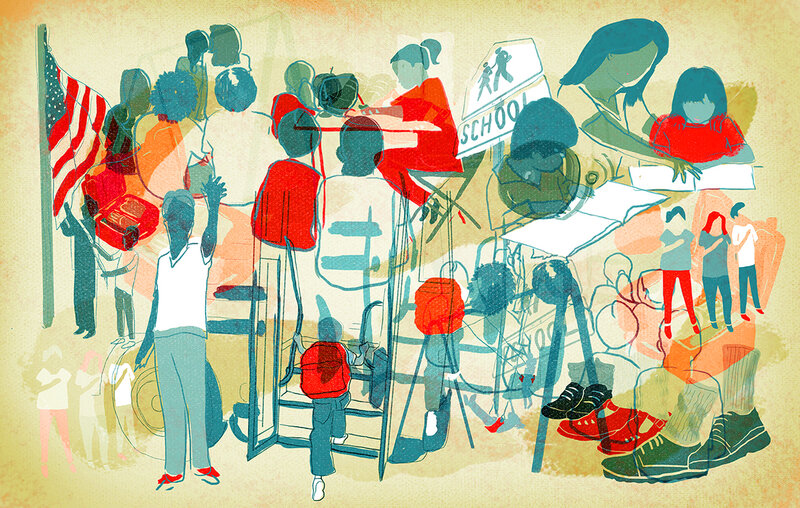What We Lose When A Neighborhood School Goes Away


It's no accident that neighborhood schools are battlegrounds for so many of the pitched battles over race and place in America.
LA Johnson/NPR
A few years ago, a good friend and I were walking near downtown Philadelphia, not far from my old elementary school, Thomas C. Durham, on 16th and Lombard. The school was built on the edge of a black neighborhood in South Philly in the early 1900s, and its design earned it a spot on the National Register of Historic Places when I was in the third grade. I nudged my friend to take a quick detour with me.
Standing before the old, brown brick building, I had that vaguely bewildering feeling of considering one's elementary school through adult eyes. This place that loomed large in my memory, where I learned to love reading in Ms. Curtis's class and where I sent my first email in computer lab on a white Apple IIGS with a blue screen, seemed really damn small.
But memory was the only place that Durham — my Durham — still existed. The school had closed its doors in the late 1990s because of the city's crushing budget problems, and was later swept up in a wave of charter-ization that took over Philly after I graduated. The old Durham building now housed something called the Independence Charter School. My middle school, George C. Thomas in deeper South Philly, has undergone a similar conversion. They were part of a larger trend: In the last three years alone, Philadelphia has shuttered over 30 of its public schools. And because of the makeup of Philly's public school system, most of the students affected by all this upheaval have been less-resourced children of color.
So what happens to these places? Some became charters like Durham and Thomas; others were abandoned altogether. And then there are cases like Edward W. Bok High School in South Philly, a once well-known vocational-technical school that closed two years ago, found new life as the digs of a trendy hipster bar, and has become an inevitable flashpoint in the fight between the neighborhood's gentrifiers and the folks with older roots.
It's no accident that local schools are battlegrounds for so many of our most heated, pitched battles over race and place in America; schools are the reasons many of our cities and suburbs (and the neighborhoods therein) have the borders they do. There are big structural and pedagogical questions embedded in how we decide to educate (or not educate), how we prioritize and allocate our public resources. Who gets to go to the best of them? Where are they located? Do we have to share?
But as I realized when I visited the ghost of Durham, local schools also fulfill a smaller, human-scale function: they orient us to our own histories, anchors of continuity in the What We Lose When A Neighborhood School Goes Away : Code Switch : NPR:
